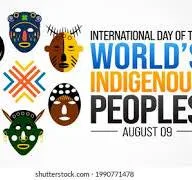The International Day of the World's Indigenous Peoples is celebrated on August 9 each year to promote and protect the rights of the world's indigenous populations. This observance was first proclaimed by the United Nations General Assembly in December 1994, marking the day of the first meeting of the UN Working Group on Indigenous Populations in 1982.
The day serves as an opportunity to recognize the significant contributions that indigenous peoples make to global diversity, including their rich cultural heritage, traditional knowledge, and unique languages. It also draws attention to the challenges these communities face, such as discrimination, displacement, and violations of their land and resource rights.
Each year, the UN selects a theme for the day to highlight specific issues affecting indigenous communities. Past themes have included "Indigenous Peoples’ Right to Education," "Indigenous Languages," and "Leaving No One Behind: Indigenous Peoples and the Call for a New Social Contract."
This day is marked by various events worldwide, including educational forums, cultural activities, and advocacy efforts to promote indigenous peoples' rights and ensure their voices are heard in national and international decision-making processes


